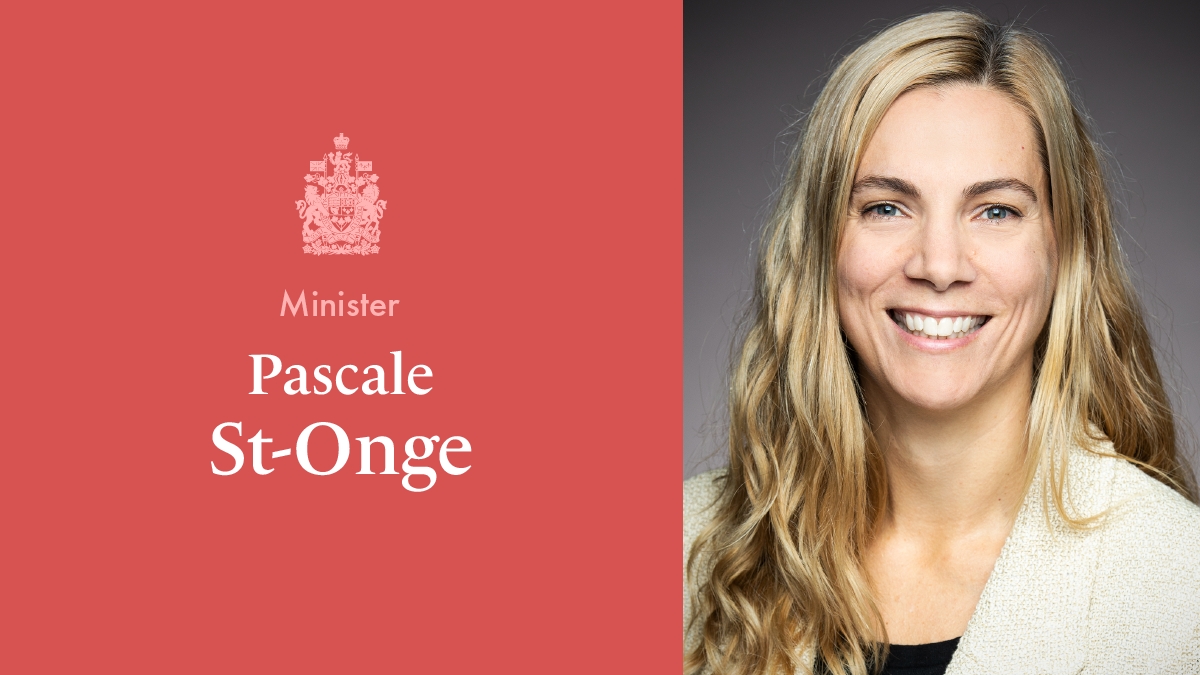

The Rural Municipalities of Alberta (RMA), the organization that represents the province’s counties and districts, wants Alberta’s charitable gaming model to be formally reviewed.

Alberta charitable organizations can apply for a license to conduct volunteer-run casino events. But the RMA says the current system is unfair to non-profits based in rural communities, which earn considerably less on average than those in cities.

News reports, casino events run by Calgary organizations receive $42,000 on average per year for hosting a casino event every 20 months while groups in rural areas outside the city get $16,000 on average and have to wait three years between events.
The RMA wants the charitable gaming model reviewed regularly and put forward several recommendations for an overhaul. Those include changes such as one that would pool a portion of the revenue generated in each region and distribute it equally to all regions. The organisation says it would significantly reduce the current revenue gap.
RMA President Paul McLauchlin also says that the problem could be eased if the AGLC’s PlayAlberta site gave a slice of its online gaming revenue to charities.
“There’s an opportunity to make everybody whole if they looked at the online gaming proceeds flowing into the same system as well as potentially bumping it all up,”.
How does charitable gaming fit into Alberta gaming plans?
McLauchlin noted the charitable gaming model in Alberta “has been a political issue for a really long time… time goes by and nobody hears anything, so we’ve got to bring it back up again.”
The RMA will send sending a letter to the province this week seeking a formal review.
The issue has resurfaced at a time when Alberta is undergoing a wider assessment of the feasibility of a regulated gaming industry. Service Alberta and Red Tape Reduction Minister Dale Nally has been tasked with leading a $1 million review of the potential path forward in Wild Rose Country.

Nally’s press Secretary Nicky Gocuan told that “the province will engage with traditional casino operators, Racing Entertainment Centre operators, and First Nations starting this year to hear their perspectives on opportunities to expand iGaming in Alberta in a way that makes sense for our province, its market, and Albertans.” There was no indication of how much consultation would take place with charitable gaming organisations.
Gaming model has provided more than $383 million to Alberta charitable and religious organizations.
“We recognize there are still more opportunities to strengthen the charitable gaming model and the need to study how we can improve the support of charitable organizations from the rural communities,” Gocuan added.
The minister’s office’s statement added that the province will review AGLC’s operations to assess the potential of increasing contributions to Alberta charities and community facilities.

I loved

I liked

I dont liked

For decades, Nevada was the nation’s only state where sports betting was legal. A Supreme Court decision last decade changed that. Today, sports betting revenue is just a fraction of the state’s overall gaming total. Arizona, our neighbor to the southwest, recently surpassed Nevada in the nation’s sports betting ranks. It surely won’t be the last.
The ink wasn’t even dry on the U.S. Supreme Court’s 2018 ruling that opened the door for states to legalize sports betting when predictions began surfacing about the Nevada market’s expected tumble in rankings.
Six years later, Nevada is not even the leading sports betting state in the Southwest.
That distinction now belongs to Arizona.

Just 32 months after Arizona sportsbooks launched sports betting, April marked the first month ever that they took in more wagers than their Nevada counterparts. Nevada sportsbooks took in almost $569.3 million in sports wagers through the month while Arizona operators booked $656.3 million in bets.
Eliers & Krejcik Gaming analyst Chris Krafcik said April’s results will be the new normal for Nevada, which was the only state with legal sportsbooks before the Supreme Court’s May 2018 decision to throw out the 1992 Professional and Amateur Sports Protection Act (PASPA).
“Nevada and Arizona share a border, but their sports betting markets are not comparable,” said Krafcik, who follows sports betting and digital gaming for the Southern California advisory firm.
Arizona, with its Phoenix metropolitan area population of more than 5 million — the 10th largest city in the nation — draws wagers from its residents, while the tourist market drives sports betting in Nevada, according to Krafick.
Also contributing to Arizona’s ranking is how residents wager: 99 percent of the bets are made through mobile apps. Arizona has a few in-person tribal casino sportsbooks and sports betting venues connected to the Phoenix sports stadiums that are operated by FanDuel, DraftKings, BetMGM and Caesars Sportsbook.

The biggest difference between sports betting markets in Arizona and Nevada? The Grand Canyon state’s gaming laws allow for remote registration to sign up for online sports betting, while Nevada still requires prospective sports gamblers to register in person.
Growth of Nevada’s mobile sports betting business, which still accounted for 65.8 percent of all sports wagers in 2023, is hamstrung by the in-person registration requirement — most of the 38 states that have legalized sports betting allow remote registration.
Krajcik said Nevada’s lack of remote registration has reduced the sports wagering totals from visitors and has contributed to keeping the nation’s two leading sports betting operators, FanDuel and DraftKings, away from directly operating in the state.
Many Nevada casino operators, led by Red Rock Resorts and others with large sportsbooks, have long opposed remote registration in favor of in-person signups. Gaming executives have said they have invested millions of dollars into their sportsbooks, which serve as a draw for customers who also spend money at non-gaming amenities, such as restaurants.
They also point out that sports betting is just a small part of the Nevada gaming industry’s overall revenue stream — only 3 percent of last year's record-breaking statewide total of $15.5 billion. Nationally in 2023, sports betting revenue of $11 billion was 16.5 percent of the overall gaming revenue of $66.6 billion, according to the American Gaming Association.
But not everyone feels that way. MGM Resorts International CEO Bill Hornbuckle — whose company also operates a combination sportsbook, sports bar and tavern in Glendale, Arizona — expressed support for remote sports betting registration in 2021, calling the current system “arcane.” He has not backed away from that opinion.
 Customers wait in line to bet
Customers wait in line to bet
Chris Altruda, who writes for the sports betting news website SportsHandle, suggested the Arizona market’s increase came from Phoenix’s hosting of the NCAA Men’s Basketball Tournament’s Final Four at State Farm Stadium from April 6-8.
Nevada took in almost $8.3 billion in sports wagers in 2023, trailing New York ($19.2 billion), New Jersey ($12 billion) and Illinois ($11.6 billion) as the largest sports betting states. Arizona trailed Nevada by three spots with $6.57 billion in wagers.
However, Arizona’s sports betting revenue was $557 million in 2023, compared to Nevada’s $481.3 million, which was a single-year record for the Silver State.
With college football and the NFL seasons roughly 10 weeks away, Altruda suggested Arizona could remain ahead of Nevada, especially if recently launched sports betting apps from Fanatics and ESPN perform ahead of expectations.
Krafcik said the gap between Arizona and Nevada will widen if the status quo continues. He predicted the Nevada market would settle in the $500 million to $600 million range for annual sports betting revenue, with Arizona reaching between $700 million to $800 million.

While the province’s beloved Edmonton Oilers used momentum to force a Game 7 in the Stanley Cup Finals, a new push could get the Alberta sports betting market off the ground by the end of the year.
At the Canadian Gaming Summit last week, Alberta sports betting was the talk of the conference. That included Dale Nally, minister of Service Alberta and Red Tape Reduction, confirming during a keynote speech the province will follow a model similar to Ontario sports betting.

“It’s going to be very similar to Ontario because we’re following their model,” Nally said, noting how much the province loves sports and the Oilers. “As far as I’m concerned, they built the roadmap. We’ll massage it a little bit but it’s been inspired by the experience in Ontario. It’s going to be an open and free market.”
Multiple speakers throughout the Summit said commercial Alberta sportsbooks could launch by the end of the year. It would be the second online commercial market in Canada sports betting.
Alberta sports betting path

Last month, Alberta lawmakers passed Bill 16, which allows the province to create a new regulatory body to oversee sports betting and online casinos, similar to iGaming Ontario.
That means Alberta Gaming, Liquor and Cannabis will not oversee the market. Nally said commercial operators made it clear they did not want AGLC running the market because AGLC runs PlayAlberta, the province’s online online gambling site.
PlayAlberta launched in 2021 after Canadian lawmakers changed the criminal code to allow for single-event sports wagering.
What’s next for Alberta sports betting
Nally said the discussions on the market’s framework are ongoing.
That includes conversations with the province’s 45 First Nations and commercial land-based casino operators. Those discussions will run through the summer, Nally said.
“We drew a line in the sand in 2019 and said we would be partners with indigenous communities,” Nally said. “We want them to be a part of the prosperity.”
What will be different in Alberta?
In Ontario, there is tension between First Nations and the provincial government, including a recent court case. This month, the Ontario Superior Court dismissed the Mohawk Council of Kahnawàke‘s case, which sought to defend its sovereignty in gambling.
Nally said he wants the First Nations involved as a form of “economic reconciliation.”
He also said, unlike Ontario, he wants Alberta’s 29 land-based casinos to be directly linked to the online market. Nelly did not specify if that means tethering licenses to casinos or some other type of connection.
Ontario’s first two years

In its second year of commercial online gambling, Ontario bettors wagered CAD$63 billion, a 78% increase over the first year, according to a market report released in April Operators generated CAD$2.4 billion in revenue, a 72% year-over-year increase.

Then Jay-Z, whose entertainment company Roc Nation is partnering with SL Green and Caesar’s on the Times Square casino bid, posted an open letter on Instagram, pleading with New Yorkers to pick him.
“This is too important of a moment in our city’s illustrious history” the letter warned. New Yorkers should go with an operator who puts them “at the top of their agenda.”
New Yorkers may be forgiven for having some doubts that a Times Square casino would really have their best interests at heart. Especially as the biggest sweetener — $115 million for diverse theater programs that include daycare for Broadway workers — seems aimed at softening up a group of Broadway owners who’ve been trying to block the Times Square casino.
(Nor is it the first time Jay-Z has been deployed to win over casino skeptics: “I remember one of the companies excitedly told me about Jay-Z. ‘He’s coming on board. Maybe you want to meet him?’” state senator Liz Krueger told Bloomberg earlier this year.)
It’s been a few months since New York opened the bidding process for the three downstate casino licenses, and billionaires have spent much of that time falling all over themselves to win New York City’s.
Right now, real-estate giants like Related and SL Green, hedge-funder/Mets owner Steve Cohen, real estate scion Steven Soloviev, and Coney Island magnate Joe Sitt have all thrown down a $1 million application fee to be in the running.
They’ll need to win over a six-member community advisory committee, then spend $500 million on the license and another $500 million in capital investment. It’s up to the applicants to figure out what kind of proposal and community perks package will persuade the committee to pick them, which leaves a lot of room for creativity.

Alberta has been confirmed as the latest Canadian province to consider opening up a regulated online gaming market, audiences at the Canadian Gaming Summit were told.
On Thursday, June 20, Dale Nally, Alberta Minister of Service and Red Tape Reduction, revealed that the province is officially moving forward with plans to open its own regulated market.
“Let me tell you a little bit about what our gaming site is going to look like,” Nally said. “It’s going to be very similar to Ontario, because we’re following their model. As far as I’m concerned, they build the roadmap. We’ll massage it a little bit but it’s been inspired by the experience in Ontario. It’s going to be an open and free market.”
Despite being the only regulated gaming operator in the province, Alberta Gaming Liquor and Cannabis, which operates the PlayAlberta brand, will not oversee the regulated operators in the province, Nally confirmed.
Nally noted that operators wishing to enter the province would likely feel uneasy about cooperating with the AGLC and sharing data and information with a group that is essentially a competitor.
Alberta could replicate Ontario’s approach to avoid this issue, where iGaming Ontario works separately from regulator Alcohol and Gaming Commission of Ontario to conduct and manage individual gaming operations in the province.
Building on existing relationships between Alberta’s land-based gambling industry and the First Nations, Nally mentioned that the First Nations in the province will be involved in the marketplace as well.
Nally provided no timeline for the market opening, but did ensure that the legal steps are already in place for Danielle Smith, Alberta Premier, to move forward.
The announcement follows on from a bill that was passed into legislature in Alberta last month to confirm the province’s ability to conduct and manage gaming as they see fit, opening the door for an open market.

Senate Bill S-269, introduced by Senator Marty Deacon, aims to establish a national framework for regulating sports betting advertisements in Canada. Deacon, a member of the Independent Senators Group, noted that previous efforts to legalize gambling did not address the subsequent increase in advertising.
With approximately 16 months left before the next election in October 2025, time is limited for Parliament to pass Bill S-269. The bill must progress through the Senate and the House of Commons before an election call, which would dissolve the current legislative session.
Deacon believes the bill needs to reach the House by Christmas to have a chance of passing in this Parliament. There is general support for the legislation, but the timeline remains tight.
The governing Liberals have expressed their anticipation for the bill’s arrival in the House.

Heritage Minister Pascale St-Onge acknowledged the widespread concern about the impacts of online gambling advertising on young people and other vulnerable groups.
The Bloc Québécois and Green Party also plan to review the bill when it reaches the House while the Green Party is still in the process of discussing the legislation within its caucus.




